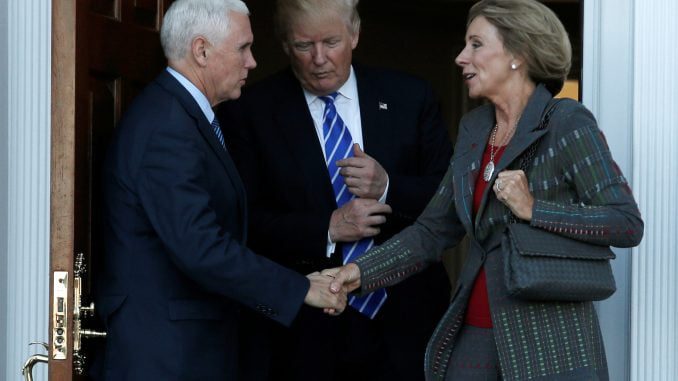
While Donald Trump continues to unveil his cabinet, the most important decisions may not be the names that head up the cabinet posts but how many agencies can be cut. Trump’s promise to “drain the swamp” will be disappointing if ethic reforms are enacted without trimming the federal bureaucracy. After all, the surest and quickest way to enact meaningful reforms to government corruption is by shrinking its size and scope.The federal government, and more importantly citizens, thrived long before the existence of the Department of Education (1980), Department of Energy (1977), and Homeland Security (2002). One of the main problems with the continued growth of federal agencies is the expanding authority coupled with a shrinking accountability to the people. While Homeland Security may be a necessary agency in a post 9/11 world, its expanding reach and searches at sporting events, festivals, trains, and highways is problematic for civil liberties. The recent IRS scandal that targeted conservative groups, and to a lesser extent, organizations sympathetic to the Occupy Wall Street movement is not only un-American but also illegal. Nonprofits must not be harassed when applying for tax-exempt status based on their political views. The recent “I’m above the law” arrogance and ultimate lack of accountability of IRS officials during Congressional hearings is one of the most poignant reminders of the dangers of an entrenched and growing bureaucracy. An aggressive reform of the federal tax code is an important first step to strip the IRS of some of its insolence and its $11 billion budget. Fortunately, one of the positive consequences from a Donald Trump presidency is the claim that 35 percent of federal employees vowed to possibly quit or retire if he were elected. However, this threat is likely to recede, not unlike the celebrities who threatened to leave the country, or if Cher is to be believed, even the planet. Still, Trump should commit to phasing out non-essential federal positions when federal workers leave or retire. With the $20 trillion federal debt, one of the disappointing aspects of the Trump campaign is his insistence that he would not touch entitlement spending. Entitlement obligations, especially Social Security and Medicare, make up the biggest obstacle to curbing federal spending and debt. This makes it all the more important for Trump to commit to curtailing the spending, or better yet, shut down altogether those non-essential federal agencies that could easily save American taxpayers hundreds of billions of dollars annually. The larger principle, even above cutting unsustainable spending, is that the federal government has expanded into too many areas that function better under state and local control. Furthermore, federal growth and encroachment crowds out the more important functions of civil society charities that allow this nation to flourish. While some of Trump’s cabinet picks have strong records of articulating limited government worldviews; it will be a terribly missed opportunity for his administration and the nation if spending at government agencies only continues to grow and their authority expand. Trump has a realistic opportunity to put a dent in Ronald Reagan’s well-known maxim: “Nothing lasts longer than a temporary government program.” It’s important that Americans understand that continual resistance to bureaucracy is vital. Unchecked bureaucratic power over time becomes autocratic and despotic. For too long, the Washington Beltway has grown burdensome to those citizens it claims to represent. As early as next year, Americans should find out if “drain the swamp” is merely another forgotten campaign slogan.



